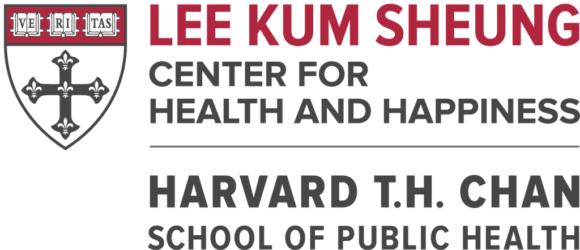What can a study of multiple health behaviors teach us about positive health science, and how can we develop a more sophisticated understanding of happiness and optimism as determinants of health? Center Research Scientist Dr. Claudia Trudel-Fitzgerald, first author of the Center’s most recent paper to be accepted by Preventive Medicine, describes what she learned from examining lifestyle data at multiple time points over 10-22 years.
A growing body of research reveals an association between psychological well-being and physical health, and related factors including health behaviors that guard against disease. By focusing on one key behavior at a time – such as sleep, healthy diet, or exercise – researchers can begin to understand some of the linkages between positive psychological well-being and health outcomes across the lifespan.
Yet many health behaviors are themselves linked. Dr. Claudia Trudel-Fitzgerald’s latest study recognizes the complexity of a world where people are likely to practice a combination of multiple behaviors – referred to as a lifestyle – that could have synergistic effects on health. “For instance, individuals who smoke are more likely to drink alcohol,” Dr. Trudel-Fitzgerald said, “whereas those who are physically active are more likely to favor a healthy diet and maintain ideal body weight.” When considered over the lifespan, research on the determinants of multiple health behaviors “allows the identification of compound, potent risk factors that should be prioritized in future intervention studies, and eventually, in public health policies.”
The Center’s latest study offers a novel approach with regard to capturing lifestyle more comprehensively as an outcome, as well as to considering two distinct dimensions of psychological well-being – happiness and optimism – as potential determinants of health. “Happiness is usually viewed as a state, which tends to be less stable over time, while optimism is more frequently considered as a trait, which is generally more stable over time,” Dr. Trudel-Fitzgerald said. “Despite these differences, higher levels of both happiness and optimism were related to a greater likelihood of maintaining a healthy lifestyle over decades of follow-up.”
In fact, happiness and optimism yielded effects of “a very similar magnitude,” a result which surprised the team. The authors offers various potential explanations, including the possibility that psychological well-being dimensions might be somewhat exchangeable – at least in terms of impact on lifestyle.
Dr. Trudel-Fitzgerald encourages research that will examine “whether various dimensions of psychological well-being are related to the adoption of multiple healthy behaviors when assessed more closely over time,” especially over the course of a single day. For example, is a promotion at work associated with higher chances of engaging in physical activity – or avoiding alcohol intake – later that evening? Are optimistic people less likely to eat fast food and smoke a cigarette after experiencing a stressful event? “These are a few examples of questions we are looking forward to investigating in the future,” Dr. Trudel-Fitzgerald said.

